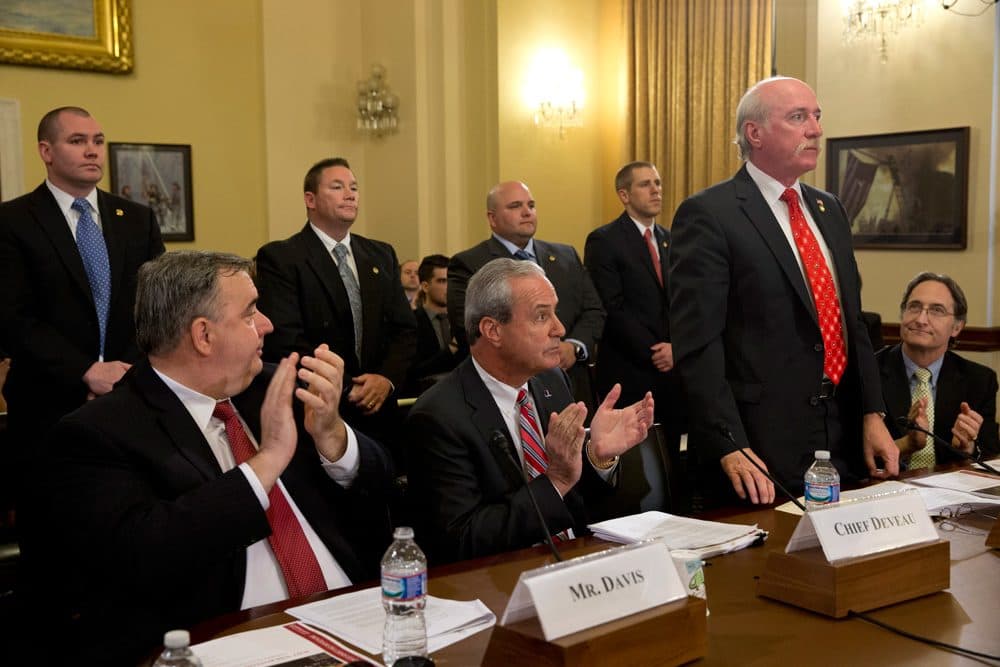Advertisement
Congressional Hearing Reflects On Marathon Response
Resume
The U.S. House Homeland Security Committee looked back Wednesday at the response to the Boston Marathon bombing and the Watertown manhunt that followed.
Watertown Police Chief Ed Deveau and former Boston Police Commissioner Ed Davis were among those on Capitol Hill to testify.
Committee members heaped praise on the officials — and Boston-area citizenry too — for their response to last year's tragedy, saying that but for them, it would have been worse.
Deveau — joined in the committee room by five of his officers who were first on the scene of what became the Watertown shootout — did not hide his pride.
"When I began my comments today I mentioned our goal was to be the best police department in the state, and I am not sure if we reached that," he said. "But I can tell you one thing: For eight-and-a-half minutes, we were the best damn police department in the world."
But some committee members raised concerns that federal officials held back important information, including a day's delay in the public release of photos of the bombing suspects. And New York Rep. Peter King told Davis that New York city officials were upset to learn several days after alleged bomber Dzokhar Tsarnaev was captured that Times Square may have been a target.
"What is the protocol if you do find there's a possible additional attack that's being planned?" King asked. "Should that police department be notified? It could have been Philadelphia or anyone along the Atlantic Coast there."
Davis replied: "I really think we may be holding the information too closely in the interest of prosecution or having justice the only thing that we think about. Because in addition to justice there is the issue of public safety."
Davis and Deveau both agreed that a lack of street-level coordination led to confusion during the manhunt, when police from numerous jurisdictions streamed into Watertown. In a recent report, Harvard researchers concluded that created dangerous cross-fire situations.
Davis said Congress should consider a new law to bring existing federal rules and training for upper level joint command down to the street level.
This article was originally published on April 09, 2014.
This segment aired on April 9, 2014.